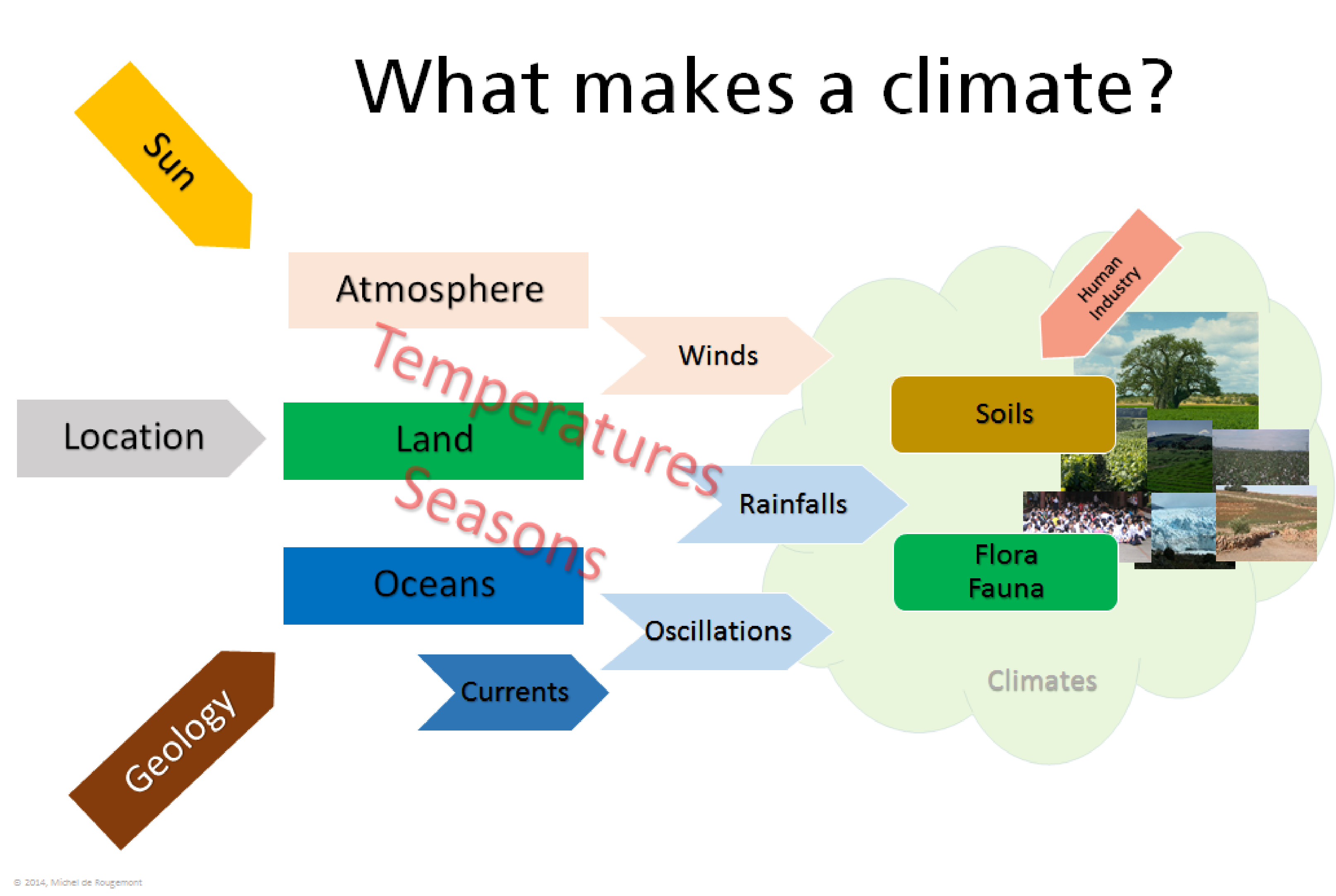
Climate varies all the time since the Earth exists.
We don't know what constitutes a desirable climate, and it would be an impossible task to democratically agree on what the climate should be.
Nor can we determine if and how a change of climatic conditions will have a positive or a negative impact for life on Earth, in particular human life.
But we are always afraid of any change, because of its uncertain outcome.
Season after season we experience weather variations, and we barely remember the weather of past years. We are used to it and we know that our environment doesn’t fundamentally change with each jump of the weather, and that catastrophic events like hurricanes, bouts of drought, or floods have a lasting impact on the victims, but not on our basic living conditions.
Over time, centuries and millennia, the environment has been under the influence of climate variations: fauna and flora, soil composition, biodiversity, glaciers, lakes and other water reservoirs are long term products of the climate, in association with the geologic shaping of the planet.
There is no "World Climate" but rather zones with climatic patterns: temperate, continental, arid or semi-arid, tropical, etc.
Temperature, air humidity, winds, rainfalls, and cloud coverage are parameters used to characterize the weather in a given place at a given point of time. As observed in the lower and upper atmosphere, on land surface and over the oceans, long time series of these parameters enable the characterisation of a climatic region. Hidden behind high short term variability, significant long term trends may indicate that climate change is taking place.
Since about thirty years, hypothesis and categorical affirmations are made about such on-going climate variations, their reality, their impact on present and future living conditions, and the extent to which human activities contribute significantly to it, in particular by emitting so-called greenhouse gases.
These questions give rise to hefty disputes on the underlying science, on correlative and predictive models, on social and ecological consequences of climate changes, and on actions to be taken, or not, to mitigate their negative effects, or to take advantage of their positive ones. Any proposed action must not only be effective, it must also be contrasted with other development priorities in the real World.
For a long time I could neither size nor seize the issue. And after having been exposed to doomsday predictions of an uncontrolled population growth, of a world left without essential resources such as energy and farming land, of forests dying from pollution or from slash burning, of acidifying lakes, of the general contamination of the environment with all sorts of synthetic poisons, or of the post-nuclear winter, I’m just not ready to give credit to anthropogenic catastrophic warning about climate warming without having a critical look at it.
Confronted to the fact that the burning of all fossil fuels – gas, oil, and coal – in one year represents approximately 0.02% of the energy involved in all rainfalls, or 0.008% of all solar energy reaching the planet, I had a hard time to be convinced of the existence of a significant causal relationship between human industry and climate change. Even the boldest finance moguls are unable to exert such leverage over their own ecosystem.
So, I had to approach this subject with an open although critical mind to try to understand the underlying phenomena that are leading many scientists to give alarm signals, and to forge my own opinion. Also I needed to grasp what motivates political constituencies to relay these signals in the form of catastrophic predictions.
Faced with such complex question one has to study the subject matter, or to trust experts.
I chose to study, well aware of my limitations, my lack of scientific formatting, and my lack of transcendental knowledge. I took on writing this essay to coerce myself to an ordered reasoning. This led me to new insights and opinions that are neither conventional nor banal. Thus I become some sort of a little bit of an expert whom the reader is now kindly asked to believe.
And if this exercise contributes enlightening others it will have served more than once.


